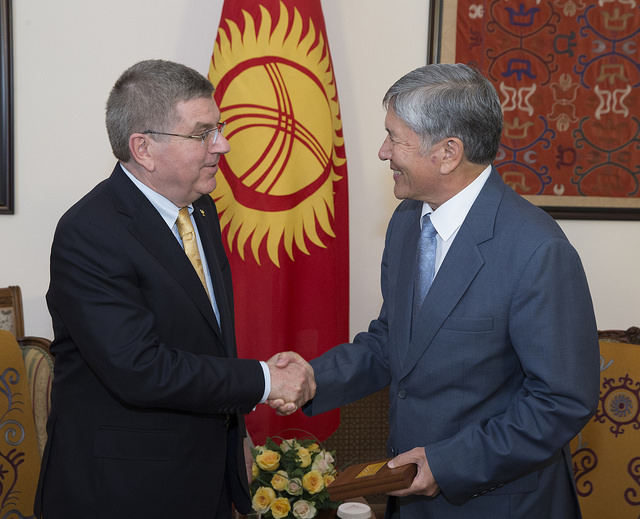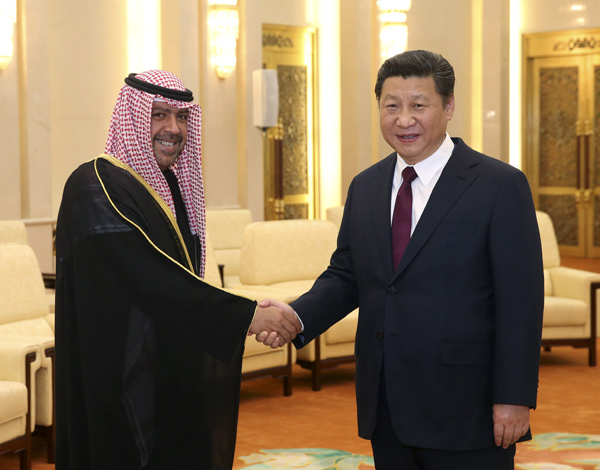Hamburg’s 2024 Olympic bid went down Sunday to devastating defeat in a referendum, a result that is — no reason to mince words — bad, just very, very bad, for the International Olympic Committee and, especially, IOC president Thomas Bach.
Even with all kinds of external factors weighing on the vote — the Paris attacks, a scandal involving Germany’s winning 2006 World Cup soccer bid, the refugee crisis in Germany and across Europe, and more — the vote marks a sharp repudiation of the IOC’s Agenda 2020 would-be reform plan and, indeed, Bach’s leadership, both substance and style.
Worse, it’s a repudiation by his own people.
Bach is, for anyone even remotely familiar with the Olympic scene, himself German. Indeed, before becoming IOC president, he was head of the German Olympic confederation, which goes by the acronym DOSB.
This is on him.
The no vote Sunday amounted to 51.6 percent; yes, 48.4 percent. About 650,000, or half, of the eligible 1.3 million voters in Hamburg took part.
It leaves four cities left in the 2024 race: Paris, Rome, Budapest and Los Angeles. The IOC will pick the 2024 winner in 2017.
The balloting Sunday is intriguing for any number of reasons.
It shows what bad business it is — if in many ways understandable — how a few percentage points either way can make or break a massive project, and not just an Olympics. A better result would have been a big number, either way.
It clearly suggests, too, that it’s the end — and probably for a very long time — for bids from Germany, traditionally one of the most important nations in the Olympic scene.
“It looks like thoughts of Olympia and Germany don’t go together,” Alfons Hörmann, now the president of the DOSB, told reporters.
An IOC spokesperson, meanwhile, said, “Having followed the discussions in Germany over the last weeks, this result does not come as a complete surprise. With this decision a great opportunity for the city, the country and … sport in Germany is lost.”
It’s actually way beyond that, and this offers the most intrigue.
Fundamentally, the IOC is looking at a profound brand crisis.
As Nikolas Hill, the Hamburg bid leader, said in a conference call, “As you know the things we had to face in the last few weeks — the attacks in Paris, the soccer crisis, the refugee situation and many more things — all these topics I would see in direct connection to the Olympic agenda, the reform agenda of the IOC.”
It’s now Bach’s job to get out front and fix it.
If he can.
“We noticed a change of mood in the city,” Florian Kasiske of the German opposition NOlympia group, said. “People can see that there are things where the money is better spent.”
Bach, in his two-plus years as IOC president, has acted as a global diplomat of sorts, meeting — by his own count — some 100 heads of state or government. He has traveled repeatedly to the United Nations.
Everywhere he goes, the IOC president takes pictures. There’s invariably a press release.
Mindful that all politics, even global politics, is local, here is the core question: how much time, effort and energy did the IOC president spend over the past six months in Hamburg, talking up the bid with voters and key officials?
The answer: zero.
What is the point of meeting heads of state x, y and z if you can’t even get your own home country to understand the financial picture and then get excited about the Olympic enterprise?
To draw an American analogy, Bach has been like the congressman who is always in DC but never at home, listening to and engaging with his constituents. In Bach’s case, that means he has been either at IOC headquarters in Lausanne, Switzerland, or at some presidential palace, somewhere.
The IOC, in fact, has a great story to tell. Why isn’t it — and in particular, the IOC president — out there doing exactly that?
This is so obvious:
When people don’t want you, something’s wrong. Very wrong.
And in recent months around Europe, the IOC’s traditional base, voters and public officials have made it increasingly clear they either don’t want, or plain-out fear, the Olympic brand.
The Olympic story is supposed to be that the Games come to town and that’s a good thing — promoting not just the sometimes-ethereal notion of a better world through sport but the concrete concept of a positive after-Games legacy.
Even so, in the afterglow of arguably the greatest Summer Games ever, London’s 2012 Olympics, taxpayers in six western European democracies dropped out of 2022 Winter bidding, five of the six put off to varying degrees by the $51-billion figure associated with the Sochi 2014 Winter Games or with the IOC itself:
Oslo; Stockholm; Davos/St. Moritz, Switzerland; Krakow, Poland; and Munich.
The sixth 2022 European entrant — Lviv, Ukraine — fell out because of war.
Munich bid for the 2018 Winter Games, and lost, to Pyeongchang, South Korea. A Munich 2022 bid probably would have won going away.
Instead, the would-be Munich effort was killed — just as Hamburg’s was Sunday — by voter referendum. So, too, Davos/St. Moritz. Krakow, as well.
Oslo put on the 1952 Winter Games, Lillehammer the 1994 Winter Games; Stockholm, the 1912 Summer Games; St. Moritz, the 1928 and 1948 Winter Games; Munich, the 1972 Summer Games. So it’s not as if there isn’t historical precedent to make the case to the locals all about the upside of an Olympics.
Moreover, within a few days of the St. Moritz/Davos balloting, voters in Austria rejected a 2028 Summer plan. Innsbruck put on the 2012 Winter Youth Games; it staged the 1976 and 1964 Winter Games. And Salzburg bid for the 2014 and 2010 Winter Games.
In early 2012, the then-prime minister of Italy called off Rome’s 2020 bid, citing uncertain costs associated with the project. Rome put on the 1960 Summer Games.
What else did the IOC need to hear, and start grappling with, the problem?
By the end, the 2022 race proved completely illustrative of the dynamic, featuring just two survivors, Beijing and Almaty, Kazakhstan.
In IOC voting this past July 31, Beijing won for 2022, even though there is little to no snow in the mountains roughly two hours away where the ski events would be held, and the bid budget did not include, for instance, the billions it’s going to take to build a high-speed rail line from Beijing up to the ski venues.
In December, 2014, the IOC members had approved, unanimously and with almost no public dissent, Agenda 2020, Bach’s 40-point reform plan.
How was a vote for Beijing, with environmental and human rights issues, and budget fudging from the outset, in line with Agenda 2020?
Two days after the 2022 vote, meanwhile, at that very same IOC general assembly in Kuala Lumpur, at Bach’s invitation, the members heard at length from Sir Martin Sorrell, chief executive officer of London-based WPP, the global advertising and marketing group, about — its brand.
In large measure, the speech focused on digital opportunities, including the one undeniably new initiative in Agenda 2020, the creation of an Olympic TV channel.
That said, Sorrell’s broad observation is worth revisiting anew.
To stay relevant in an ever-changing world, Sorrell made plain, the IOC must keep re-inventing itself. He said it had — and must still — show “a willingness to continually adapt, even if that change has not always been easy.”
Now is precisely such a moment.
Communication about what the IOC is, and the Olympic Games can be, needs to be radically revised. And Bach ought to consider far-reaching changes in the the way the IOC president approaches the bid process.
As the IOC’s then-executive Games director, Gilbert Felli, said some 16 months ago in observation about the 2022 fiasco, “So in the communications, and that’s the lesson from this campaign here, we lost good cities because of the bad perception of the IOC.
“So we have to learn our lesson and the ones to blame is the IOC.”
There remain those four cities for 2024. Again, Paris, Rome, Budapest and LA. Four, yes -- but for how long?
What is the chance the Italians pull out again? Rome has municipal corruption and fiscal woes, big-time.
How serious, really, is the Budapest effort?
Bach would probably — strike that, almost definitely — say that as IOC president, his job is to remain studiously neutral in any IOC election.
But he can take a neutral position with regard to the cities themselves even while doing what he should — strike that, must — now be doing: rallying support for the Olympic movement itself, and the notion of a local Games.
The president is too smart and sophisticated not to understand this basic: his job is not to stand by and watch the fraying, if not destruction, of the Olympic brand. All because he wants to remain neutral?
No.
In this context, he is the farthest thing from neutral. He has to be an advocate. Bach needs to go in the next several weeks and months, and repeatedly if need be, to the four markets remaining in the 2024 race — note, four major global markets — and, as Sorrell advised, make the case for why the Games are relevant, fun, interesting and deserve to come to town.
Enough with the heads of state and the photo ops, at least for now.
Talk to real people.
Be accessible. Be real. Be relevant.
Leadership means accepting responsibility, confronting challenge and delivering solutions.
If there was any doubt before, Sunday’s vote in Hamburg can leave none. It’s time to see some real leadership at and from the IOC. And that starts at the top.









